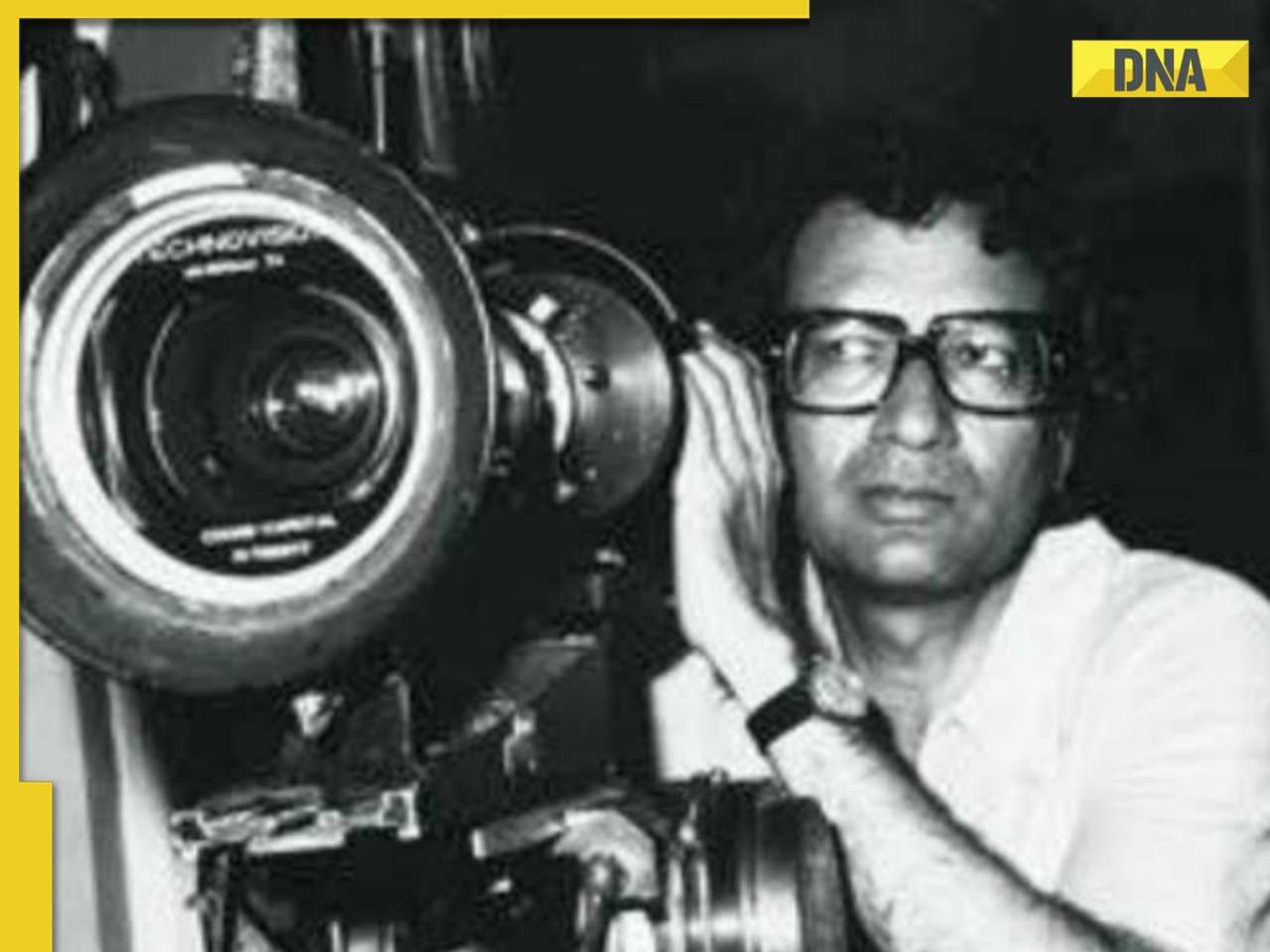John Templeton, the billionaire US philanthropist who made his fortune as the pioneer of global investing in the postwar boom, has died. He was 95.
Eventually, he said, all securities and assets will be priced according to their future earnings
John Templeton, the billionaire US philanthropist who made his fortune as the pioneer of global investing in the postwar boom, has died. He was 95.
Templeton died Tuesday at Doctors Hospital in Nassau, the Bahamian island that was his home, his spokesman, Don Lehr, said in a statement. The cause was pneumonia.
The Templeton Growth Fund was one of the first mutual funds to give Americans access to investments in companies abroad.
Since its start in 1954, the fund has returned 13.5% a year on average, meaning a $10,000 investment would be valued at about $8.5 million as of March 31, including reinvested dividends and capital-gains distributions.
Like Warren Buffett, Templeton developed a cult following, with fund investors flocking to annual meetings to hear his pronouncements. Money magazine in 1999 called him “arguably the greatest global stock picker of the century.”
A devout Presbyterian, Templeton may be remembered as much for financing the study of spirituality as for his canny investments.
In 1972, he set up the $1 million-plus Templeton Prize. Mother Teresa was the first recipient, six years before she collected the Nobel Peace Prize. He always made sure that his award offered more money than the Nobel Prizes.
“What we say about investments isn’t as lasting as what we say about spiritual matters,” Templeton, who was a board member of the American Bible Society, said in a 1993 interview from his home in the Bahamas.
Investing took a back seat to his religious and charitable endeavours, particularly after he sold his mutual fund empire for $913 million to Franklin Resources Inc of San Mateo, California, a month before his 80th birthday in 1992.
He graduated first in his class at Yale University, all while paying his own tuition during the Depression by earning scholarships, doing administrative work for the university and beating his classmates in poker, according to a 1999 profile in Wired magazine.
He earned a law degree at Oxford University in the UK, having been named a Rhodes Scholar. Though the law school there was known for its socialist leanings at the time, Templeton remained uncritical of capitalism as a student.
At 24, he set off on a seven-month tour of 35 countries with fellow Oxford Christian James Inksetter. They slept on ship decks and ate vegetables, fruit and day-old bread to conserve their money.
“This education in thrift prepared me for a career of selling advice to wealthy families by searching for stocks whose basic value seemed to be many times greater than the market price,” he said in 2004.
Before he left for his travels he had written to 100 investment firms, letting them know he’d be available for hire when he got back.
When he returned, there was a job waiting for him at the Wall Street firm Fenner and Beane.
When World War II began in 1939, Templeton borrowed money to buy 100 shares in each of the 104 companies selling for $1 a share or less, including 34 that were in bankruptcy, according to a biography on his foundation’s Web site.
Only four turned out to be worthless after Templeton held each for an average of four years.
Later, the Templeton Growth Fund was designed to invest in companies worldwide with the prospect of returns based on future earnings growth, a so-called bottom-up, value-investing style.
“We must remain patient, flexible in our outlook, and always aware that eventually all securities and assets will be priced according to their future earnings,” Templeton wrote in the foreword to the 2002 book Engines That Move Markets by Scottish money manager Alasdair Nairn.
Templeton attributed much of his success to his ability to maintain an elevated mood, avoid anxiety and stay disciplined.
Uninterested in consumerism, he drove his own car, never flew first class and lived year-round in his peaceful ocean-side home in the Bahamas.
In 1998, he estimated that, apart from spiritual programs, he had watched fewer than 84 hours of television in his life, according to an article in Investor’s Business Daily.
By the time he sold the business to Franklin, it managed about $20 billion for clients and had money managers such as Mark Mobius, a prominent emerging-markets investor.
He wrote, edited or contributed to at least 10 books from The Humble Approach: Scientists Discover God in 1982 to Faithful Finances 101: From the Poverty of Fear and Greed to the Riches of Spiritual Investing in 2005.
Templeton is survived by two sons, a stepdaughter, three grandchildren and three great-grandchildren. One son, John Jr, retired as a pediatric surgeon in 1995 to become president of the foundation.
![submenu-img]() This singer left Air Force, sang at churches, became superstar; later his father killed him after...
This singer left Air Force, sang at churches, became superstar; later his father killed him after...![submenu-img]() Indian-origin man says Apple CEO Tim Cook pushed him...
Indian-origin man says Apple CEO Tim Cook pushed him...![submenu-img]() Anil Ambani’s Rs 96500000000 Reliance deal still waiting for green signal? IRDAI nod awaited as deadline nears
Anil Ambani’s Rs 96500000000 Reliance deal still waiting for green signal? IRDAI nod awaited as deadline nears![submenu-img]() Most popular Indian song ever on Spotify has 50 crore streams; it's not Besharam Rang, Pehle Bhi Main, Oo Antava, Naina
Most popular Indian song ever on Spotify has 50 crore streams; it's not Besharam Rang, Pehle Bhi Main, Oo Antava, Naina![submenu-img]() Did Diljit Dosanjh cut his hair for Amar Singh Chamkila? Imtiaz Ali reveals ‘he managed to…’
Did Diljit Dosanjh cut his hair for Amar Singh Chamkila? Imtiaz Ali reveals ‘he managed to…’ ![submenu-img]() DNA Verified: Is CAA an anti-Muslim law? Centre terms news report as 'misleading'
DNA Verified: Is CAA an anti-Muslim law? Centre terms news report as 'misleading'![submenu-img]() DNA Verified: Lok Sabha Elections 2024 to be held on April 19? Know truth behind viral message
DNA Verified: Lok Sabha Elections 2024 to be held on April 19? Know truth behind viral message![submenu-img]() DNA Verified: Modi govt giving students free laptops under 'One Student One Laptop' scheme? Know truth here
DNA Verified: Modi govt giving students free laptops under 'One Student One Laptop' scheme? Know truth here![submenu-img]() DNA Verified: Shah Rukh Khan denies reports of his role in release of India's naval officers from Qatar
DNA Verified: Shah Rukh Khan denies reports of his role in release of India's naval officers from Qatar![submenu-img]() DNA Verified: Is govt providing Rs 1.6 lakh benefit to girls under PM Ladli Laxmi Yojana? Know truth
DNA Verified: Is govt providing Rs 1.6 lakh benefit to girls under PM Ladli Laxmi Yojana? Know truth![submenu-img]() Alia Bhatt wears elegant saree made by 163 people over 1965 hours to Met Gala 2024, fans call her ‘princess Jasmine’
Alia Bhatt wears elegant saree made by 163 people over 1965 hours to Met Gala 2024, fans call her ‘princess Jasmine’![submenu-img]() Jr NTR-Lakshmi Pranathi's 13th wedding anniversary: Here's how strangers became soulmates
Jr NTR-Lakshmi Pranathi's 13th wedding anniversary: Here's how strangers became soulmates![submenu-img]() Streaming This Week: Heeramandi, Shaitaan, Manjummel Boys, latest OTT releases to binge-watch
Streaming This Week: Heeramandi, Shaitaan, Manjummel Boys, latest OTT releases to binge-watch![submenu-img]() Remember Ayesha Kapur? Michelle from Black, here's how actress, nutrition coach, entrepreneur looks after 19 years
Remember Ayesha Kapur? Michelle from Black, here's how actress, nutrition coach, entrepreneur looks after 19 years![submenu-img]() Remember Heyy Babyy's cute 'Angel' Juanna Sanghvi? 20 year-old looks unrecognisable now, fans say 'her comeback will...'
Remember Heyy Babyy's cute 'Angel' Juanna Sanghvi? 20 year-old looks unrecognisable now, fans say 'her comeback will...'![submenu-img]() DNA Explainer: Why Harvey Weinstein's rape conviction was overturned, will beleaguered Hollywood mogul get out of jail?
DNA Explainer: Why Harvey Weinstein's rape conviction was overturned, will beleaguered Hollywood mogul get out of jail?![submenu-img]() What is inheritance tax?
What is inheritance tax?![submenu-img]() DNA Explainer: What is cloud seeding which is blamed for wreaking havoc in Dubai?
DNA Explainer: What is cloud seeding which is blamed for wreaking havoc in Dubai?![submenu-img]() DNA Explainer: What is Israel's Arrow-3 defence system used to intercept Iran's missile attack?
DNA Explainer: What is Israel's Arrow-3 defence system used to intercept Iran's missile attack?![submenu-img]() DNA Explainer: How Iranian projectiles failed to breach iron-clad Israeli air defence
DNA Explainer: How Iranian projectiles failed to breach iron-clad Israeli air defence![submenu-img]() This singer left Air Force, sang at churches, became superstar; later his father killed him after...
This singer left Air Force, sang at churches, became superstar; later his father killed him after...![submenu-img]() Most popular Indian song ever on Spotify has 50 crore streams; it's not Besharam Rang, Pehle Bhi Main, Oo Antava, Naina
Most popular Indian song ever on Spotify has 50 crore streams; it's not Besharam Rang, Pehle Bhi Main, Oo Antava, Naina![submenu-img]() Did Diljit Dosanjh cut his hair for Amar Singh Chamkila? Imtiaz Ali reveals ‘he managed to…’
Did Diljit Dosanjh cut his hair for Amar Singh Chamkila? Imtiaz Ali reveals ‘he managed to…’ ![submenu-img]() Watch: Arti Singh gets grand welcome at husband Dipak's house with fairy lights and fireworks, video goes viral
Watch: Arti Singh gets grand welcome at husband Dipak's house with fairy lights and fireworks, video goes viral![submenu-img]() Meet actress, who belongs to family of superstars, quit films after 19 flops, no single hit in 9 years; is still worth…
Meet actress, who belongs to family of superstars, quit films after 19 flops, no single hit in 9 years; is still worth…![submenu-img]() IPL 2024: Suryakumar Yadav's century power MI to 7-wicket win over SRH
IPL 2024: Suryakumar Yadav's century power MI to 7-wicket win over SRH![submenu-img]() DC vs RR, IPL 2024: Predicted playing XI, live streaming details, weather and pitch report
DC vs RR, IPL 2024: Predicted playing XI, live streaming details, weather and pitch report![submenu-img]() Watch: Team India’s new jersey for T20 World Cup 2024 unveiled
Watch: Team India’s new jersey for T20 World Cup 2024 unveiled![submenu-img]() DC vs RR IPL 2024 Dream11 prediction: Fantasy cricket tips for Delhi Capitals vs Rajasthan Royals
DC vs RR IPL 2024 Dream11 prediction: Fantasy cricket tips for Delhi Capitals vs Rajasthan Royals![submenu-img]() IPL 2024: Kolkata Knight Riders take top spot after 98 runs win over Lucknow Super Giants
IPL 2024: Kolkata Knight Riders take top spot after 98 runs win over Lucknow Super Giants![submenu-img]() Indian-origin man says Apple CEO Tim Cook pushed him...
Indian-origin man says Apple CEO Tim Cook pushed him...![submenu-img]() Meet man whose salary was only Rs 83 but his net worth grew by Rs 7010577000000 in 2023, he is Mukesh Ambani's...
Meet man whose salary was only Rs 83 but his net worth grew by Rs 7010577000000 in 2023, he is Mukesh Ambani's...![submenu-img]() Job applicant offers to pay Rs 40000 to Bengaluru startup founder, here's what happened next
Job applicant offers to pay Rs 40000 to Bengaluru startup founder, here's what happened next![submenu-img]() Viral video: Family fearlessly conducts puja with live black cobra, internet reacts
Viral video: Family fearlessly conducts puja with live black cobra, internet reacts![submenu-img]() Woman demands Rs 50 lakh after receiving chicken instead of paneer
Woman demands Rs 50 lakh after receiving chicken instead of paneer















































)
)
)
)
)
)